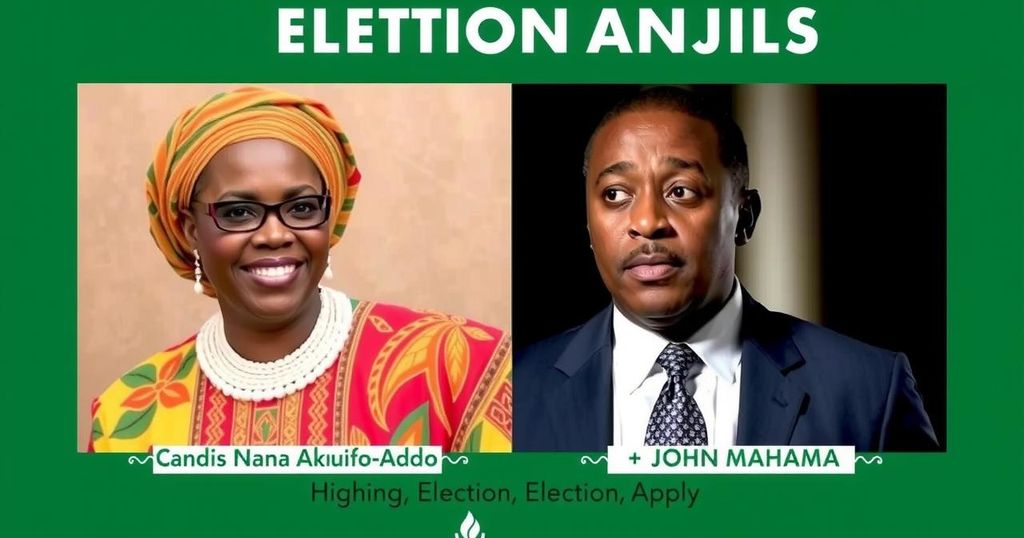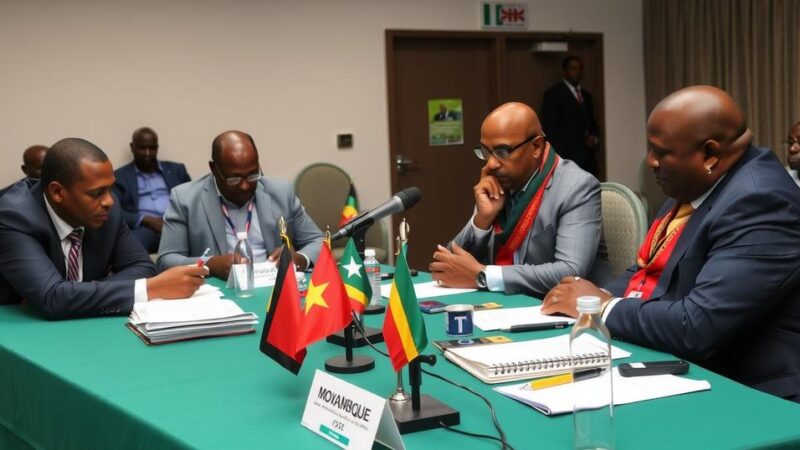Ghana’s 2024 elections saw the NPP, led by Nana Akufo-Addo and Mahamudu Bawumia, lose to John Mahama of the NDC. Public dissatisfaction with the government’s handling of economic issues, inflation, and unemployment led to significant electoral losses. Voter frustration over corruption and governance failures played a crucial role in the NPP’s defeat, reflecting a larger trend in Africa where ruling parties face increasing challenges in maintaining power.
In the recent 2024 elections, Ghana witnessed a significant political shift as the incumbent New Patriotic Party (NPP) led by President Nana Akufo-Addo and Vice President Mahamudu Bawumia was defeated by opposition leader John Mahama of the National Democratic Congress (NDC). This election marked a crucial point for the NPP, which had aimed to extend its rule beyond the conventional eight-year limit, facing severe public dissatisfaction regarding the economic crisis, high inflation, and unemployment rates. Despite claiming achievements in job creation and digitalization, the NPP’s electoral strategies failed to resonate with the electorate, leading to substantial losses in both parliamentary and regional votes. This outcome underscores the deepening discontent among Ghanaians over issues such as economic hardship, corruption, and ineffective governance that culminated in a pivotal electoral defeat.
Ghana’s political history reflects a pattern where no ruling party has remained in power for more than eight years since the beginning of democratic elections in 1992. The NPP sought to break this trend but faced declining support due to worsening economic conditions exacerbated by external shocks like the COVID-19 pandemic and the Russia-Ukraine conflict. Voters expressed their frustration over the rising cost of living, unemployment, and government accountability, positioning the NDC as a viable alternative. This election demonstrated the power of public sentiment in shaping the political landscape amid substantial socio-economic challenges.
The 2024 election results in Ghana reveal a significant public response to the ruling party’s performance during its term. The NPP’s loss illustrates the impact of economic crises and governance failures on electoral outcomes. Voter sentiments were crucial in this shift, highlighting the electorate’s demand for accountability and effective leadership. The trend observed in Ghana reflects a broader pattern in African politics where incumbents are being unseated due to socio-economic discontent, marking a potential turning point in the region’s democratic processes.
Original Source: www.bbc.com







